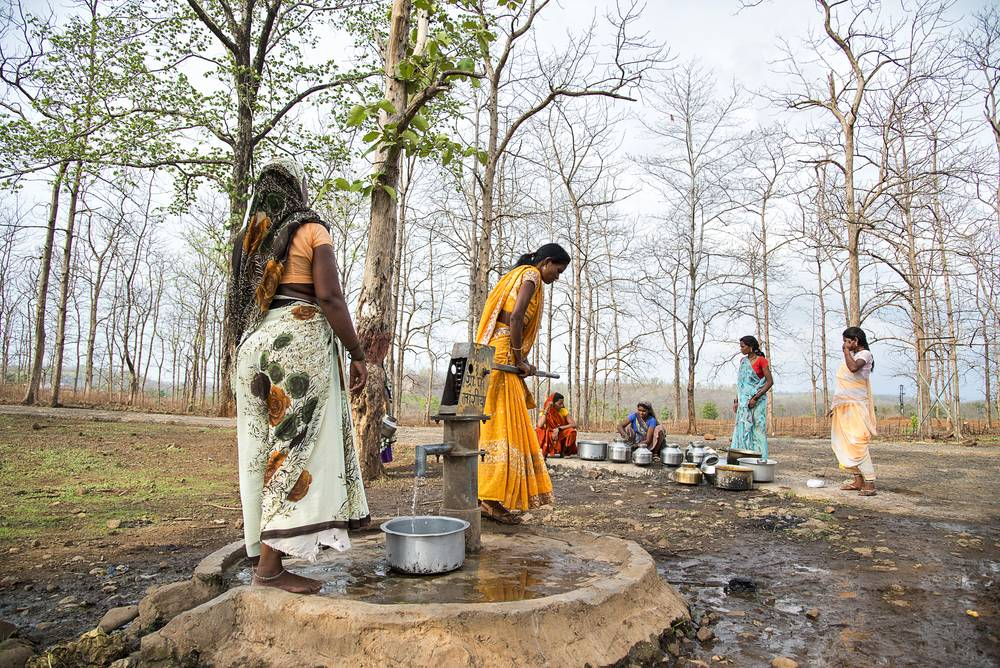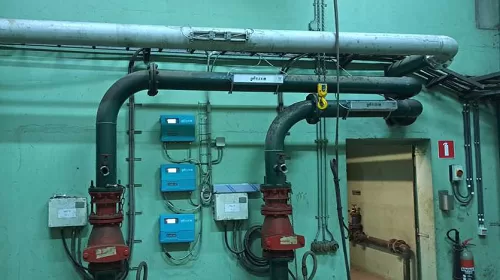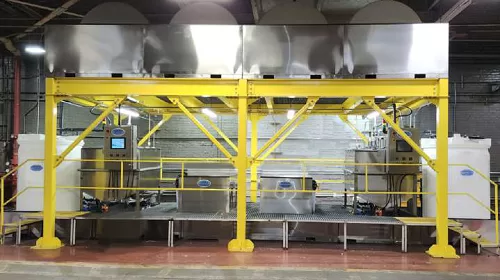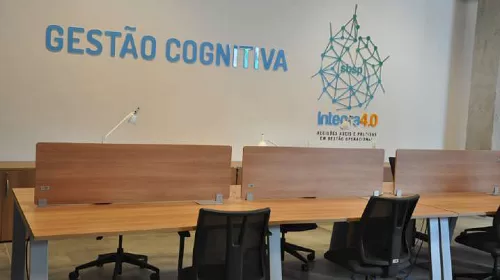Dr. Debasri Mukherjee1, Dr. M.N.Roy2, Er. Sohini Tarafdar3, Rupam Mandal4, Kabirul Islam5
1Senior Research Officer, SIGMA Foundation, 2President, SIGMA Foundation, 3Research Officer, SIGMA Foundation, 4 Field Officer, SIGMA Foundation, 5Field Officer, SIGMA Foundation.
BACKGROUND: The Swajaldhara scheme was launched by the Department of Drinking Water Supply & Sanitation (DDWS), Government of India (GOI) as a reform in the water sector. This allows establishment of village-based schemes with involvement of the Panchayats and the community. Installation of one such scheme was facilitated by the NGO, Child in Need Institute (CINI) in the Sisodangi area of the Gulma Tea Estate in Siliguri, West Bengal, India in the year 2008. The project aims to provide not only clean drinking water but also sanitation facilities and healthcare to the communities living in the area. The activities included installation of water treatment plants, construction of water storage tanks and the laying of pipelines to distribute water to the households. Overall, the Swajaldhara project has helped to improve the living conditions of the people in the Sisodangi area, and has provided them with access to basic amenities of clean water and sanitation facilities. The project began to supply water in 2009 after its launch in 2008 and a committee was established to manage the water supply. The first two years went smoothly, but after that, the project ran into trouble as the electricity bill accumulated to Rs. 3.00 lakhs, and the committee was unable to pay the amount resulting into a temporary shutdown of the scheme.
Later on, Mr. Om Pradhan was given the responsibility of operation and maintenance of the Swajaldhara project. He formed a committee consisting of the President, Vice President, Cashier, and Secretary, along with other 16 members. He, thereafter, contacted the Panchayat Pradhan Ms. Sangita Chikbaraik for support. She was of great help and extended all possible support to make the PWSS functional. She paid off all the pending electricity bills and which helped to resume the water supply.
The performance of the PWSS is monitored by the committee members. The entire committee actively participates in the functioning of the PWSS. They monitor the supply and distribution of water, ensure regular payments of the electricity bills, and take up maintenance works like repair of leakages, replacement of check valve and other maintenance activities in a systematic manner. They also ensure that there is no theft or misutilization of water in the area.
community benefit from the swajaldhara scheme: The Swajaldhara Pipe Water Supply Scheme at Gulma Tea Estate has made a notable difference in the lives of the community. It has provided them with reliable access to clean water, improved health outcomes, and alleviated financial burdens. The major changes include the lessening of waterborne disease, enhanced hygiene practices, better overall health and well-being, and increased availability of water for domestic and livelihood purposes in the community. Previously, the community faced various health issues such as skin diseases, frequent diarrhea, and stomach illness. With the implementation of the scheme, these health issues have noticeably reduced. The committee’s dedication and proactive approach to addressing challenges have contributed to the scheme’s overall performance and success in serving the community’s water needs. People receive water twice a day. The Swajaldhara committee collects Rs. 100.00 per household per month and cumulatively it makes their total income of Rs. 1.32 lakh from 110 households per year. In last 5 years the committee has spent a total of Rs. 4.5 lakhs on electricity bills and Rs. 27,000 on maintaining leakages and replacing check valves. The fund arranged from the consumers is primarily used to pay electricity bills and repairs-related expenses. There are no commercial connections in the village, so therefore, no meters are installed for commercial purposes
SOURCE SUSTAINABILITY: The main source of water is the groundwater, which is abstracted using a submersible pump at a depth of 114 feet. There is not much seasonal variation in yield of water during summer. However, during that period, the pump running timing is slightly more due to more demand. There has been no theft or misutilization of water of the PWSS. The committee members keep a constant vigil to check any such illegal withdrawals. The committee members also monitor the water usage in the area frequently.
operation & Maintenance of the Plant: The operation and maintenance (O&M) of the PWSS are primarily managed and monitored by dedicated committee members. Everyone on the committee is responsible for different types of maintenance. Specially, Mr. Om Pradhan and Mr. Kishore Pradhan actively participate in all kinds of maintenance activities on behalf of the committee. The committee’s proactive approach and self-monitoring efforts ensure the smooth functioning of the water supply system. An Overhead Reservoir (OHR) was constructed in this scheme which is cleaned periodically. Filtration processes are conducted only once a month, indicating limited attention to this aspect of maintenance. The OHR is filled twice a day to ensure a continuous water supply to the community. In terms of checking the inlet, delivery, and wash-out valves, the operator performs daily inspections. There is also a sample checking system to check the water quality. In such cases, samples are collected twice a year by the Panchayat, and instant result is declared through using of a green light indicator. There is no formal documentation process for grievances redressal, and everything is handled verbally. When consumers face any problems, Mr. Om Pradhan suggests them specific solutions or asks them to arrange a mechanic from outside at their own expense. The committee members keep an eye on the amount of water supplied per day, the frequency of supply, and the status of the tanks and pipelines. They also keep track of the amount of money collected from the households and the expenses incurred on various maintenance activities.
LESSONS LEARNT: There are several lessons to be learnt from the Swajaldhara project. These are:
- Ownership and participation by the consumers of any PWSS is very critical for ensuring continuous services.
- There is need for proper training of the personnel engaged for managing any water supply system along with availability of manual for such maintenance.
- For any PWSS serving a small number of households, even a monthly subscription of Rs 100/ is inadequate to meet the O&M cost. The GPs should come forward to fund major repair and upgradation through GPDP since the GP would have to spend for water supply in absence of the community-based water supply.
- There should be a system of supervision of community-based schemes by the GP and the Block office to monitor performance and guide for improvement.
- These schemes should conform to the service delivery norms of Jal Jeevan Mission for which the GP and the PHED should come forward to extend required support.
About the author
Dr. M.N. Roy did his M.Tech in electronics from Calcutta University and served the Government of India as a member of the Indian Engineering Services for around 2 years. Thereafter he joined the Indian Administrative Services in 1980. He studied Sustainable Development at the University of Birmingham in 1996. Thereafter, he did his Ph.D from the Tata Institute of Social Sciences, Mumbai and the research topic was Women’s Empowerment. Subsequently he headed several departments of the Government of West Bengal including the Department of Panchayats and Rural Development and the Department of Health & Family Welfare and retired as Additional Chief Secretary of the Government of West Bengal. He is the Founder President of SIGMA Foundation, which is a not-for-profit organization. He has many National and International Publications. He is a member of the International Water Association, the Institution of Engineers, India, the Indian Statistical Institute, the Indian Science Congress Association and the Environment and Sustainable Development Association, India.
Dr. Debasri Mukherjee is a Senior Research Officer in SIGMA Foundation a ‘Not for Profit Organization’ based in Kolkata, India. Before this She was a Research Officer (WQMS) from the day of inception of the Water and Sanitation Support Organization (WSSO), Public Health Engineering Department, Govt. of West Bengal for eight years. Prior to that she was with UNICEF Kolkata office for one year. The Energy Research Institute-Delhi (teri) for two years as a WASH Officer and IIT Delhi as a Project Officer for Fluoride Mitigation Programme for one year. She did her PhD from Delhi School of Economics Department of Geography and also having international exposure in the field of Water Quality Monitoring and Surveillance Programme. She specialized with water quality monitoring, management of water supply schemes related issues and in depth knowledge of water safety and security plan implementation. She is having many good publications in water sector at national and international level. She received many awards in water sector. She is a member of the International Water Association (IWA), the Indian Science Congress Association (ISCA) and the Environment and Sustainable Development Association, India.
Er. Sohini Tarafdar did her M.E by Research in Chemical Engineering from CSIR- NEERI, Nagpur and is specialised in water management technology. She works in the diversified arena of development sector with a special focus on water security and safety, water technology and circular water management for enhancement of water use efficiency for past 10 years. She has worked in various organisations including CSIR-NEERI (Nagpur and Kolkata Zonal Laboratory), CMPDI (Coal India Ltd.), SOS Children’s Village Kolkata, Riddhi Foundation and SIGMA Foundation. She has managed major projects of Government and international donor agencies like UNICEF, ADB, AMRUT etc. She also has various national, international and departmental publications. She is also involved with the development of communication materials and capacity building of various target groups related to WASH. She is a full-time member of Organisation for Women in Science for the Developing World (OWSD)- An UNESCO Unit since August,2022 and certified ESG professional.
Mr. Rupam Mondol did his Masters of Arts in Adult Education and Extension from Kalyani University, West Bengal. He has been associated with Kalyani Srijani Institute of Research and Management, Pratichi Institute and currently SIGMA Foundation. He is skilled in field investigation and supervision.
Mr. Kabirul Islam did his M.Sc in Environmental Science from Global Open University, Nagaland with Diploma in computer application and programming. He has vivid field experience of more than 20 years and has been associated with various organisations like Engo Tea Estate and Sahara India pariwar.





